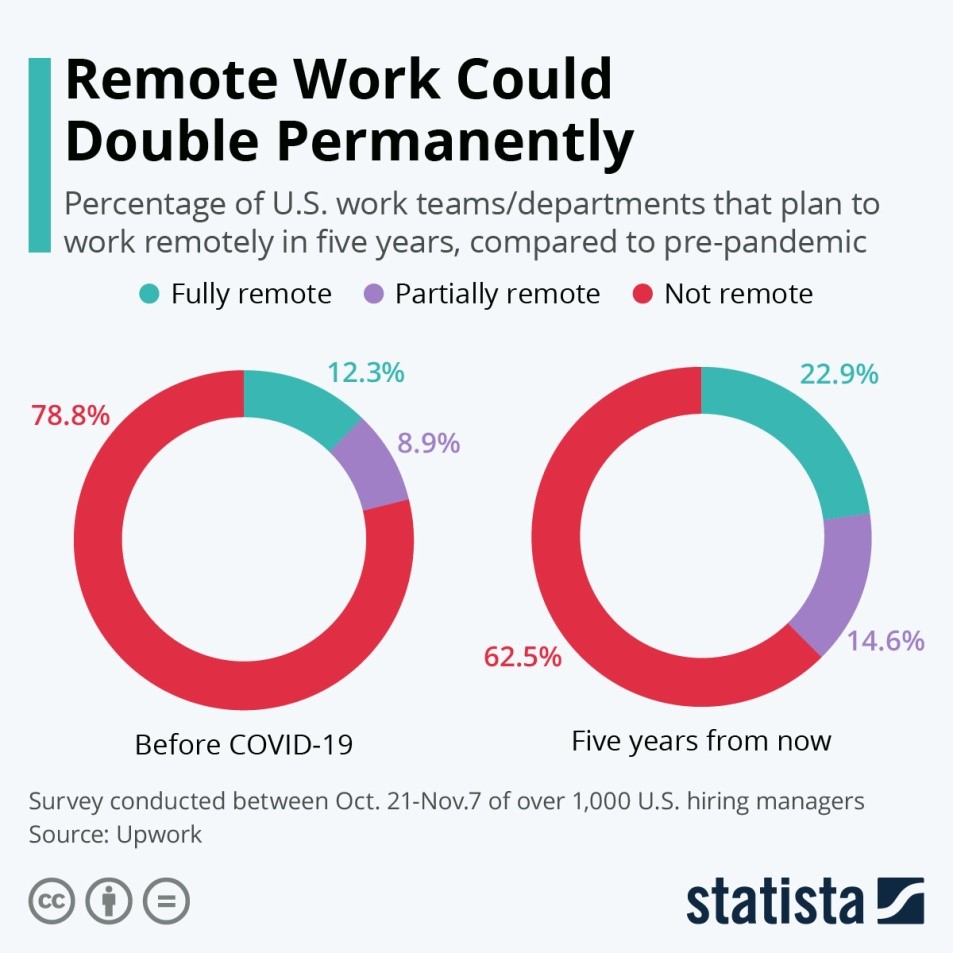
In the wake of the COVID-19 pandemic, many companies have allowed their employees to work remotely, which has been a game changer for many people. Remote work has offered employees a chance to work from the comfort of their homes, and employers have seen the benefits of this arrangement, such as lower overhead costs, increased productivity, and happier employees.
However, in recent months, there has been a trend of bosses rolling back remote work policies, and this has caused some concern among workers who have come to rely on the flexibility of remote work. Keep reading on to explore some of the reasons why bosses are rolling back remote work.
How The Balance Has Shifted
Research reveals that as of January 2023, while half of the employers believed in offering flexibility to their employees, a third of the employers have changed their minds about the virtual or hybrid model.

It cannot be denied that the work-from-home arrangement has reduced worker burnout and boosted work-life balance and in many cases improved professional performance. This implies that there is a mismatch between what employers want and what the bosses want and yet the employers are forging on bringing their employees back in.
Due to such demands, the job market faced great resignation and even quiet quitting as repercussions. Thus, employers must have greater leverage in demanding their workers back to the office, and should they dislike the new work arrangement, they must be ready to face massive layoffs.
Reasons Why Companies Are Backtracking On Flexible Work
Here are some of the reasons why bosses want their employees right where they should be:
One of the main reasons why bosses are rolling back remote work is because they want to maintain control over their employees. When employees work remotely, it can be difficult for bosses to monitor their work and ensure that they are working efficiently.
This lack of control can be frustrating for bosses, and they may feel that they are unable to manage their employees effectively. This is especially true for bosses who are used to managing employees in person and may not have the skills or experience to manage a remote workforce.
Another reason why bosses are rolling back remote work is that they want to foster a sense of collaboration and teamwork among their employees. When employees work remotely, they may feel isolated and disconnected from their colleagues, and this can lead to a lack of communication and collaboration.
Bosses may feel that it is important to have their employees working in the same physical space to foster a sense of teamwork and collaboration, which can be difficult to achieve when employees are working remotely.
When employees work remotely, there may be distractions that are not present in an office environment, such as children, pets, or household chores. This can lead to a decrease in productivity and a decline in the quality of work that is being produced.
Bosses may feel that it is important to have their employees working in a controlled environment where they can focus on their work without distractions. Thus, bosses may also be rolling back remote work policies because they are concerned about the quality of work that is being produced.
While remote work can be cost-effective in many ways, such as lower overhead costs, bosses may find that they need to spend more money on technology, such as video conferencing software, to keep their remote employees connected.
Additionally, bosses may need to provide their employees with additional training or support to help them adapt to a remote work environment, which can be costly.
Where Does This Leave Workers?
How the current return-to-office mandate will affect the workforce will largely depend on the policies issued and the success of such rules and regulations. However, as the current trend follows, the widespread adoption of return to the office might normalize the end of remote work privilege.
If the organizations are willing to diminish or completely eliminate flexible work despite the employees' desire, it can very rightly spell the end of worker power as it was during the pandemic and define authority once again. Even though there is not enough possibility that this is a definitive trend pointing to a mass return to the office, it is most likely not an impossibility. It will just be a course of a year that we employers will be able to gauge if the employee productivity remains the same after forcing them to come back to the office.
Companies Are Saying Enough Is Enough
There is an immense disconnect between why employees think they are being called in and why employees are actually calling them back. Employers think that returning back to the office can boost innovation, culture building, and creativity and they are also considering undergoing Certificate in Coaching & Mentoring to deal with the returning employees better. While remote work can offer many benefits to both employees and employers, it is important to recognize that it may not be the best option for every company or employee. Therefore, bosses should carefully consider the pros and cons of remote work and make a decision that is best for their business and their employees.
Written By : Ruchi Mehta
Centre For Training & Professional Development (CTPD) - The Trading brand of TTA Training Private Limited, India is a ISO 9001:2015 Company




© 2021 - Centre For Training & Professional Development (CTPD). All Rights Reserved. Centre For Training & Professional Development (CTPD) trading brand of TTA Training Pvt. Ltd (India) - CIN U80902WB2016PTC215839, Asia Teachers Training Co., Ltd (Thailand) - Registration No. 0105558193360 & Asian College Of Teachers Ltd (UK) - Company Number 9939942 & Asian College Of Teachers LLC, (USA) - Federal Tax Identification Number 30-1261596
Designed by kreativewebtech